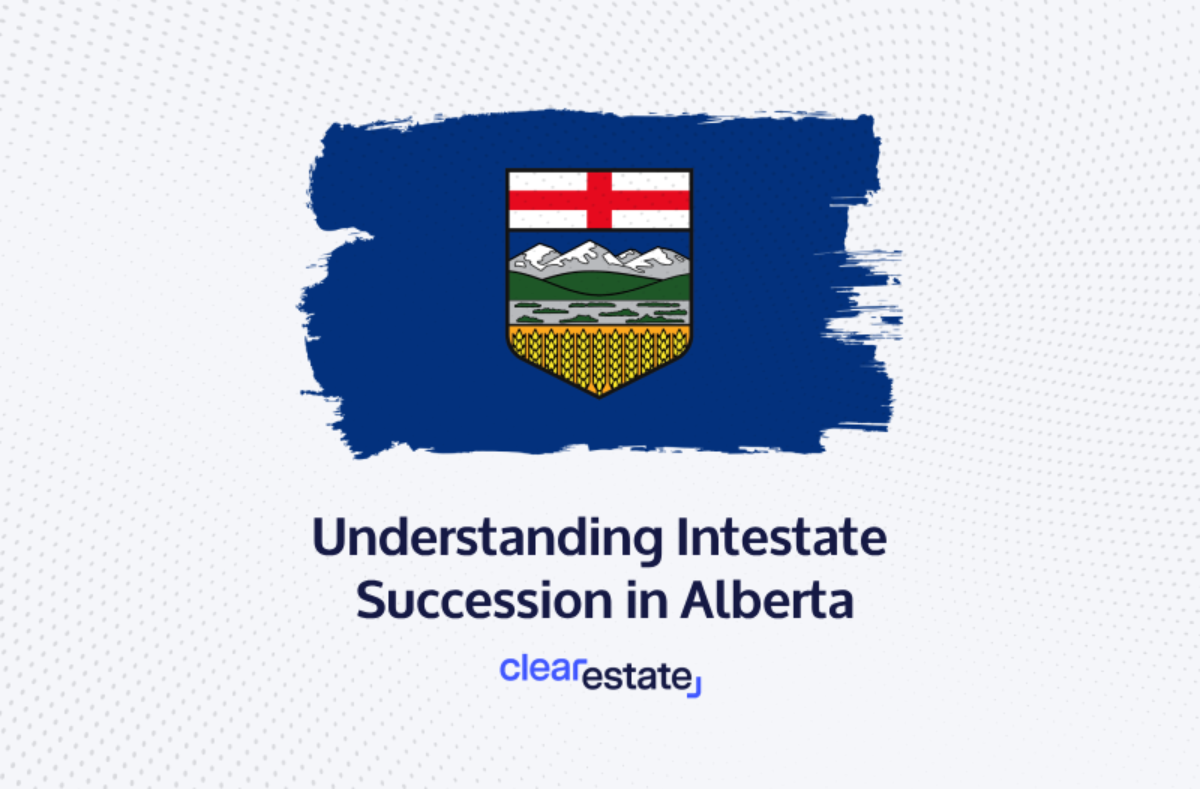Estate Settlement
Dec 04, 2024
How Do Executors Mail Inheritance Checks?
Find out how inheritance checks are mailed, including security measures and what to do if there are delays in receiving them.
Learn how Alberta's intestate succession laws determine asset distribution when someone dies without a will.


A will, also known as a last will and testament, is a legal document that outlines a person's wishes for after their death, from the distribution of their assets to the provisions for the care of minor children.
Creating a will allows individuals to ensure that their wishes are followed after their passing and can help prevent disputes among family members and loved ones, but what happens when no will exists?
When an individual in Alberta passes away without a will, this is legally termed as dying "intestate." This situation is surprisingly more common than you think; a study by the Angus Reid Institute revealed that only about half of Canadians have a will.
The distribution of the estate’s assets, therefore, will be handled through the surrogate court, which will appoint an administrator and issue a Grant of Administration.
For intestate estates - Alberta's legal system relies on two key laws:
In the cases where the decedent's last will was deemed invalid due to wrong signature format, not of sound mind - the estate may be distributed according to the intestate succession laws.
In such circumstances, the absence of a will can ignite tensions among family, friends, and acquaintances as people may feel entitled to certain assets and inheritance. To address these potential conflicts, the law has established a set of rules governing the distribution of assets and estates in such cases.
Although conflict is sometimes unavoidable in these circumstances, the Wills and Succession Act establishes a structured framework for asset allocation through the province’s intestate succession laws which prioritizes the distribution of assets to the deceased's closest relatives.
The following provides an overview of how assets are distributed according to Part 3 of the Wills and Succession Act:
Spouse or Adult Interdependent Partner and No Descendants:
Spouse or Adult Interdependent Partner and Descendants:
Both Spouse and Adult Interdependent Partner:
Descendants Only:
Extended Family:
In the absence of a spouse, partner, or descendants, the estate is distributed in the following order:
Note: Relatives of the 5th degree or greater in relationship to the deceased are not eligible to inherit under intestacy.
No Heirs:
If there are no identifiable heirs, the estate falls under the jurisdiction of the Unclaimed Personal Property and Vested Property Act. After a period of time, unclaimed properties may transfer permanently to the government.
This law applies to deaths occurring on or after February 1, 2012.
The per stirpes distribution approach is particularly relevant when the deceased has children but no spouse or adult interdependent partner. Under this rule, the estate is split into shares corresponding to the number of children the deceased had. If any of these children are deceased but have living descendants, these grandchildren step into their parent's place, receiving the share their parent would have received.
We understand that losing a loved one is difficult and dealing with the legalities of their estate can be overwhelming, especially when there is no will, but help and support is available. Book a free consultation with us so we can help you navigate the complexities of settling an intestate estate with the right support system and peace of mind.
 Simplify Probate Today
Simplify Probate Today
Get expert guidance from our probate specialists who've helped 10,000+ families.
Book a free consultation today